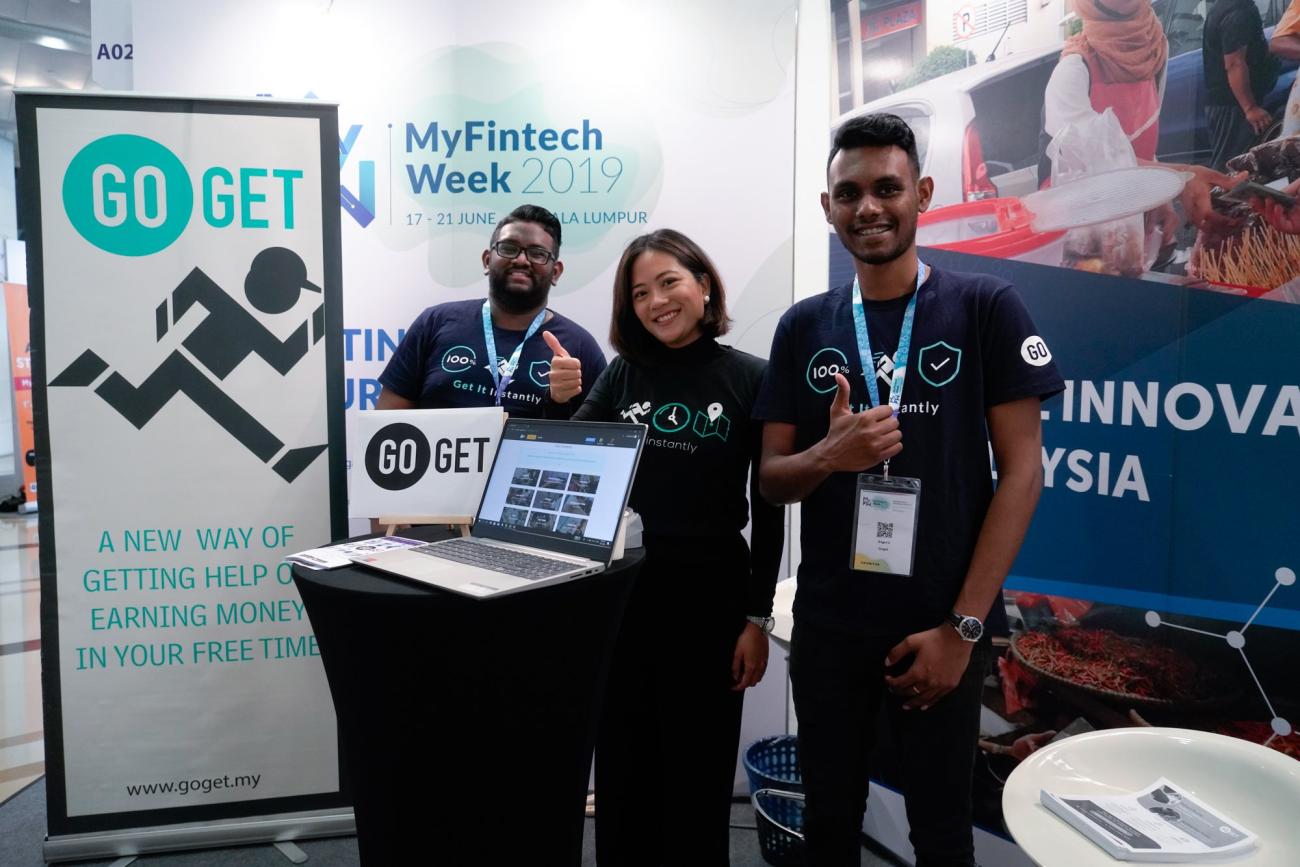GoGet, a Start-up in Malaysia, shares its’ B40 Challenge Experience

UNCDF Malaysia has been working with 18 start-ups.
Over the past few months UNCDF Malaysia has been working with 18 start-ups that are creating and refining products and services that help low- and moderate- income people improve their financial health.
To be financially healthy people need to be able to manage their spending, save for the future, borrow when they need without becoming over-indebted, and plan for goals and unexpected costs. All 18 start-ups worked on solutions that address one of these four components of financial health; spend, borrow, save and plan. GoGet is helping people to plan how to use the money they earn through the app. In this blog, GoGet recounts its experience of the B40 Challenge that took place over three and a half months and was concluded by the announcement of the winners during the MyFintech Week’19.
GoGet is an on-demand workforce platform that helps connect people who need specific jobs to a network of verified workers, called “GoGetters”. The majority of our workforce comes from the low- and moderate- income population. Our vision is to be the ultimate work app, so we want to offer our workforce the additional support and services they need.
When we entered the B40 Challenge we were focused on improving “Go-Getters” financial health by giving them a flexible way to earn and educating them on what to do with their money. In the course of the Challenge we realized the importance of helping them to be financially healthy by offering them ways to plan, save, borrow and spend.
Entering the B40 Challenge helped us to identify exactly our user’s pain points while giving us the space and time to consider how GoGet was uniquely positioned to solve these pain points.
Through UNCDF’s research, and the user research we were encouraged to do as a part of the bootcamps activities, we found that “GoGetters” were finding it hard to put the money aside. Which isn’t surprising, according to a recent report by EPF 86% of urban households in Malaysia have no savings. We also found that low- and moderate- income people are excluded by some financial institutions and may find it difficult to borrow money.
As an on-demand workforce platform we also didn’t have the infrastructure to provide financial services. This is one reason we found the bootcamp activities useful as it allowed us to build partnerships with other participating start-ups, mentors and the partners of the B40 Challenge.
By partnering with Pod, another start-up, we have been helping our users save. In just a few weeks we have seen encouraging results: the “GoGetters” who took part in the pilot saved an average of RM43 (+/- USD 10,35) a week, which accounted for 21% of their savings, and 57% “GoGetters” contributed to their savings more than once.
We will also be working with two of the other start-ups, Senang, Funding Societies, and Global Psytech to address the difficulty that low- and moderate- income people have with borrowing money. We will be providing micro-loans that GoGetters can apply after a simple application process that includes a psychometric test. Also, in partnership with Senang, we want to help people to plan for the future. We are working on offering micro-insurance that protects our GoGetters while they are working.
Through the speed-mentoring session we met with representatives from the Employee Provident Fund, the body responsible for compulsory savings and retirement planning for Malaysians. We are liaising with them currently to try and ensure that “Go-Getters” can save directly into their Employees’ Provident Fund account so that they can prepare for their retirement.
While there are more than 10,000 users registered for work through the app we need support in reaching out to low- and moderate- income people, and making sure our training processes work for them. We are hoping to utilise partner’s channels to spread the word about GoGet. For instance, we know that many low- and moderate- income people are more comfortable speaking Bahasa but our training materials are in English. By providing online training we could work with many more GoGetters; we currently require people to attend in-person training which limits the areas we can cover. We need guidance in creating effective online training materials so that we can help people all over Malaysia earn flexibly while accessing the other digital financial services they need through one app. The B40 Challenge has shown us the way to reach this goal and we hope that we can develop these training modules in the coming year with our new partners.
Read our other blogs in this series to learn about the experience of other start-ups that are helping people to save, borrow and spend in Malaysia.






